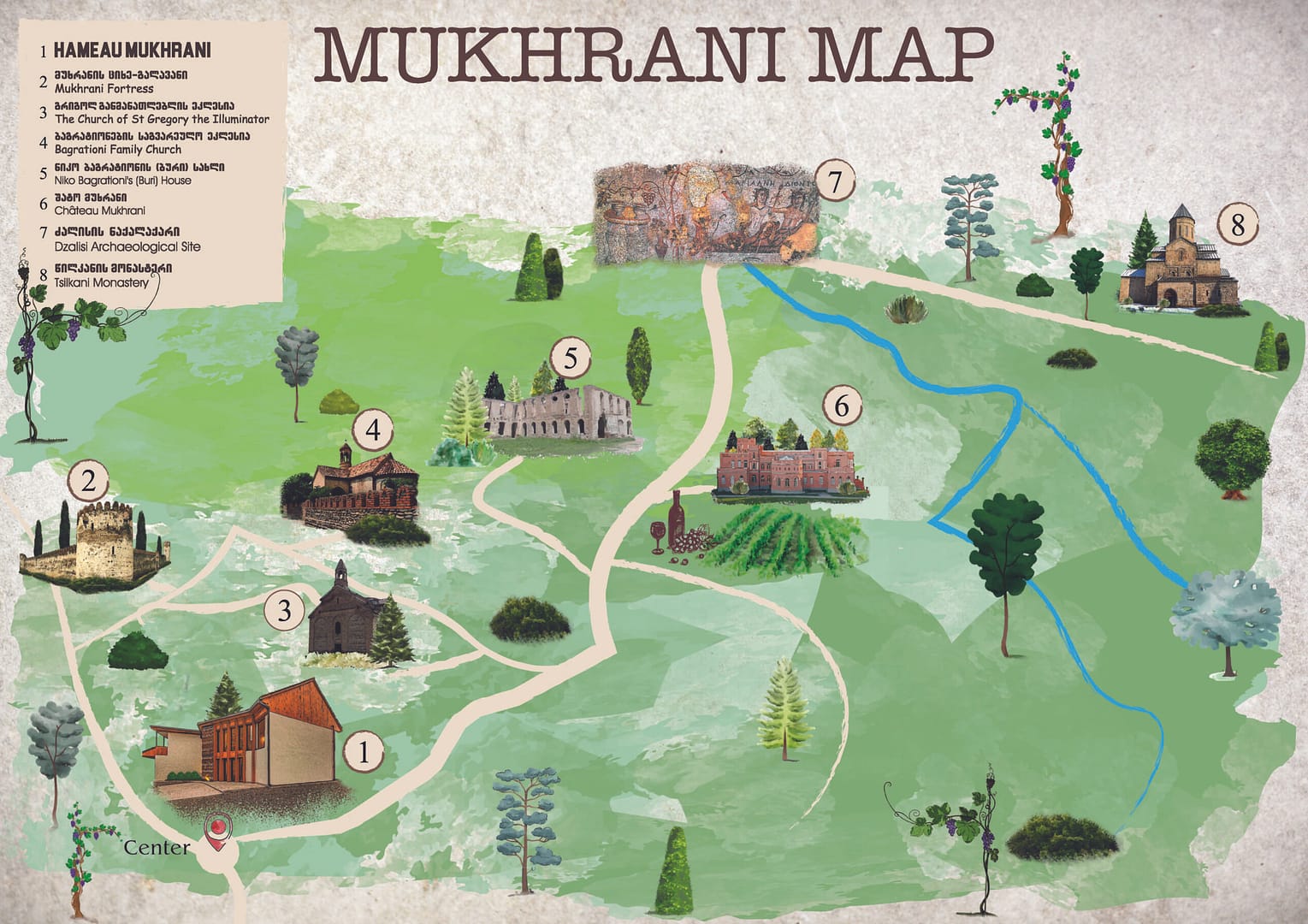About Mukhrani
Mukhrani is one of the largest villages in Georgia. Located 40 kilometers to the west of Tbilisi, it occupies around 80 square kilometers and is home to around 9,000 people.
The name Mukhrani is mentioned even in ancient Georgian written sources. Its etymology lies in the Georgian word Mukhrani, “oak grove”. This name was most likely chosen because of the oak forest near it.
Mukhrani and its surroundings have always been considered as a strategically and economically important area. The village was one of the main stations of the significant trade and travel routes that have always contributed to the region’s prosperity. Archaeological excavations have uncovered evidence of ancient settlements and civilization in the region, and have confirmed that Mukhrani played a major role in both Antiquity and the Middle Ages-firstly during the formation of the Kingdom of Kartli (Iberia), and later on during the unification of the Georgian state.
The residences of the kings of Kartli (Bagrationi dynasty) were located here. During the III-Vth centuries A.D., the region’s main centre was located near the village of Dzalisi.
According to Vakhushti’s 18th-century description, the principality of Mukhrani bordered upon the Aragvi River to the east, the Mtkvari to the south and Gremiskhevi to the north.
The Mukhrani principality encompassed 56 villages and around 1,500 families, of which 13 were dignitaries who had famous Georgian noble names.
The Mukhranbatonis of Bagrationi had their residence in Shiosubani (now Mukhrani), and their principal castles were located at Ksani and Tsikhedavi. Mukhrani’s church belonged to the Tsilkani eparchy.
In 1878, Ivane Mukhranbatoni of Bagrationis founded the first and true Georgian royal Chateau here, uniting vineyards, winery, palace, and history. Château Mukhrani is rooted in the historical tradition of winemaking in the Kartli region, which has a 8000 years of history of Georgian winemaking.
experiences
Mukhrani Experiences
Discover the charm of Mukhrani through immersive cultural and culinary experiences. This guide introduces you to authentic traditions, from cooking with a seventh-generation chef and exploring Georgia’s ancient wine and chacha-making, to fruit processing, blacksmithing, folk music, and dance workshops. Each activity is led by passionate locals who preserve and share their heritage, offering visitors a unique journey into Georgia’s history, flavors, and artistry.
Explore Mukhrani







